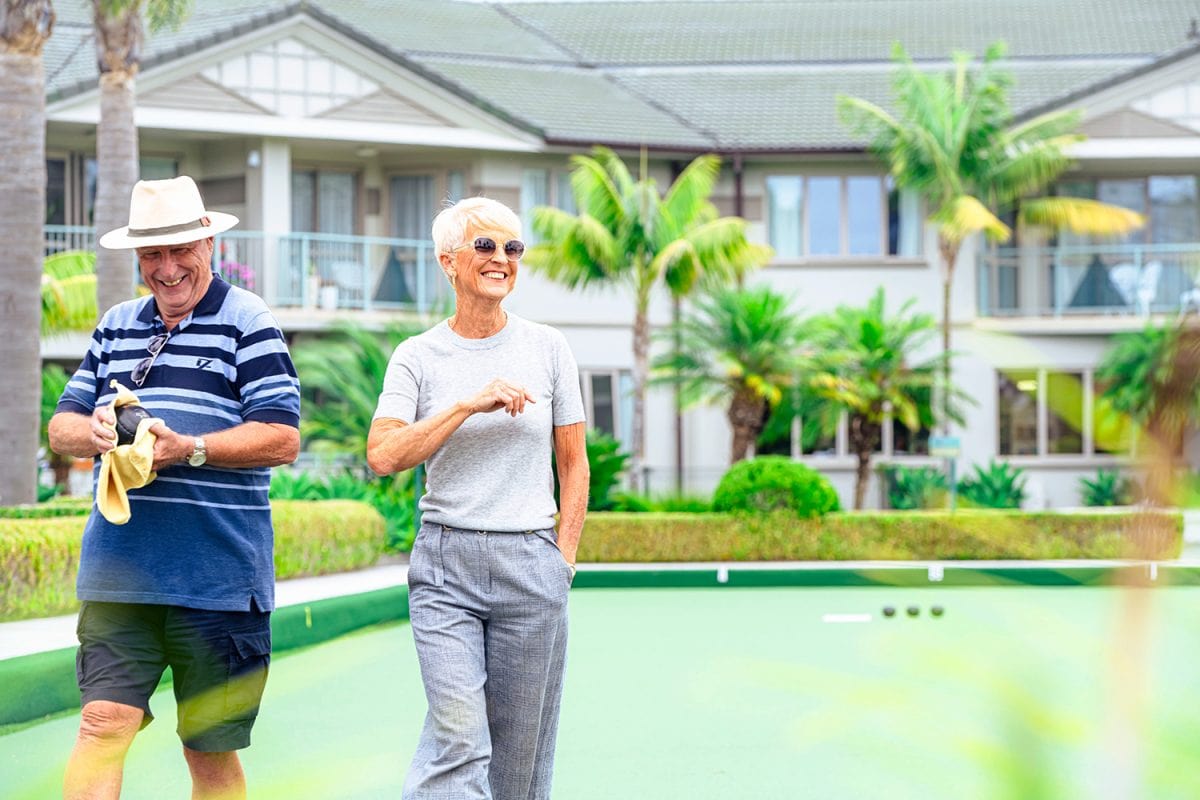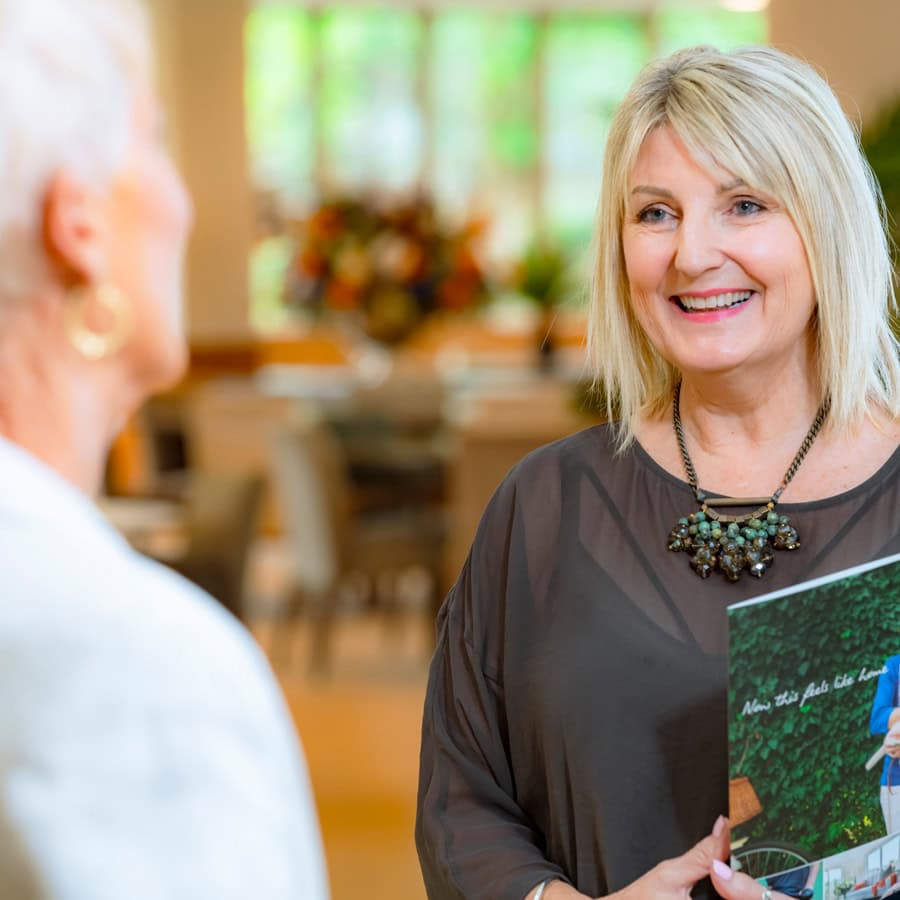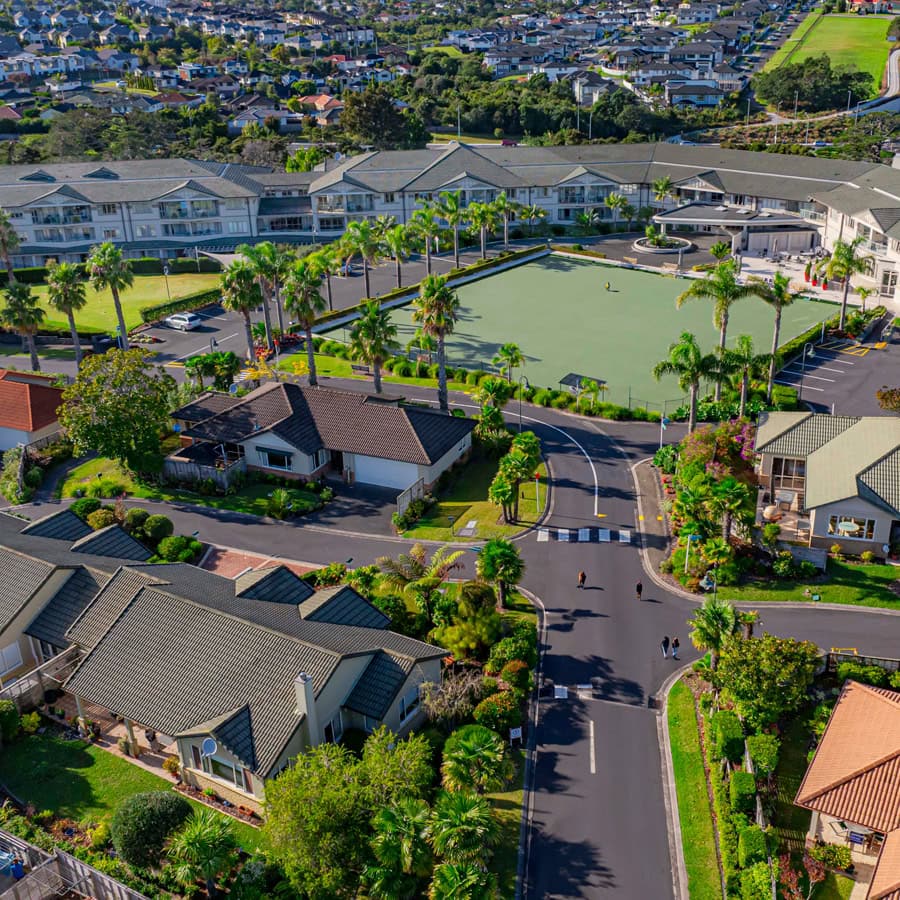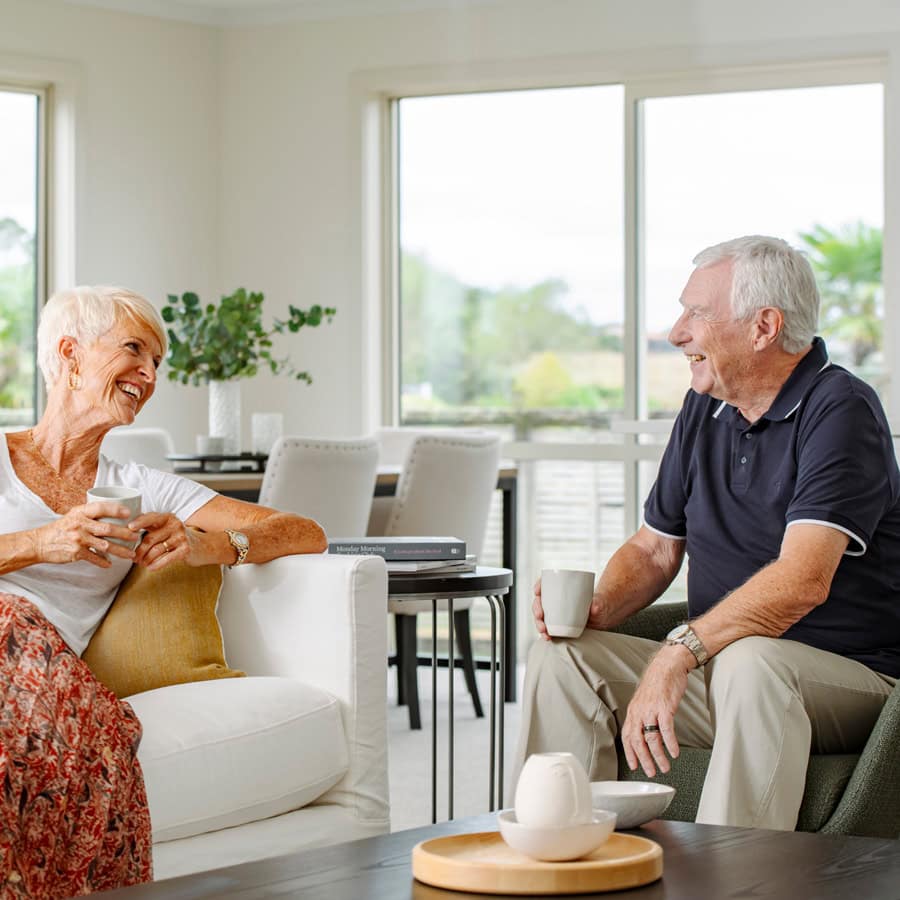Life is a series of stages. As we move through these stages, our priorities around what we want in a home shift. Singles, couples, parents of young kids, parents of teenagers, and retirees can all have different criteria about what’s perfect for them. In other words, as our needs change, so do our home preferences.
Traditional ownership is deeply ingrained in our society: you acquire a small unit or townhouse, pay it off for years, accumulate equity, and then upgrade to a larger house. Keep repeating.
Our lives become locked in a cycle of purchasing, working, paying off debt, and upgrading. Amidst all this, burdens like home maintenance, rates, insurance, etc., drain our funds and time. Many people in their younger years are both time-poor and cash-strapped.
In retirement, you can live differently and break this cycle. That’s where ‘Licence to Occupy’ (LTO) comes in. It offers a unique living structure that deviates from the typical owner-occupier cycle and prioritises lifestyle above all. With LTO, many retirees see an opportunity to truly enjoy life without the usual constraints of homeownership.
Ditching the sense of ownership might seem daunting, especially after we’ve been conditioned to aspire to it all our lives. Many people have not ever considered the concept of “licence to occupy” until they reach retirement. It’s an interesting phrase. As one resident of a licence to occupy retirement home put it, “It takes away the sense of ownership, but in the end, do we really own anything?”
According to Village News, “Licences to occupy are the most common way to live in a retirement village in New Zealand”. But it’s a way of living that has generated a lot of controversy over the years. So, what makes people choose this lifestyle? Is what you gain from living in one of these communities greater than what you lose in capital gains?
We talk to couples who made this choice, offering insights for people thinking about doing the same. Here’s what they told us.
Your buying into a lifestyle
“You’re buying into a lifestyle”, explains Jim, a resident. “And all the facilities we’ve got here, like the bowling green, the gymnasium, the swimming pool, the sauna, the movie theatre, the library, the cafe….” It’s all here to be enjoyed, and it’s so easy.
“It’s like being in a hotel at Surfers. You walk in and go wow, ‘this is lovely’. It’s like living there”.
Maggie
A key feature that struck many residents was the availability of free classes, activities, and facilities. In this way, they were able to live a vibrant lifestyle without restrictions. Because it’s easier than getting out, some seniors limit their pursuits to just the basics. Hobby and activity pursuits can also be influenced by budgetary concerns. Members of lifestyle villages have access to these activities without having to pay membership fees or travel to them.
When we get older, it is easy to fall into a rut and stop participating in activities. This can impact cognitive and emotional well-being. LTO villages can rekindle a spirit of adventure because they make it easy to stay active and pursue interests. Here is an example of the types of activities you can expect in such a village – check them out here.
You’re part of a community that’s connected

Do you remember a time when you knew your neighbours? When you felt comfortable enough to pop over for a cup of sugar or to borrow a tool? In the old days, neighbours were like family. These days, it’s hard to find people who look out for each other on a level like they did.
Several residents talked about a disconnect in their suburb over the past 20-30 years. Today, it’s not uncommon to live among strangers. It may not bother you when you’re working and raising a family, but as you get older, you may feel isolated and lonely.
Several residents, we spoke with missed the days when they could wave hello to someone on the street and know their name. Knowing the people around you brings a sense of comfort. Retirement villages can provide that sense of belonging.
“You have a shared outlook on life, a shared vision, and camaraderie that you don’t get out in the suburbs. It’s the same sort of thing that you get by belonging to a club. You never get lonely. There’s so much to do”.
June
You have certainty about budgeting
One of the most significant upsides of licence to occupy is the certainty it brings around financial planning. The couples we spoke with noted that the terms, conditions, and charges were agreed upon at the onset, thus removing the uncertainty around financial planning. The fees are fixed for life, giving residents a clear understanding of how much they need to budget.
However, not all retirement villages provide fixed fees for life, so it’s really important to check this at the onset.
“We added up our rates, our water rates, insurance, tree trimming, gardening etc. and you don’t have to worry about it – worry about who is ripping you off. And you don’t have to worry about it [costs] going up”.
Dave
Many people are concerned about the cost of living, but for those who are no longer working it can be an even greater worry. Take rates for example. As part of a plan to plug a $325 million budget hole, Auckland Council increased rates by 7.7 per cent earlier this year.
Next year, those rates could nearly double from a starting point of 13.75 per cent, as the council seeks to balance its books. Source: RNZ, Possible rates hike for Auckland will make city even more unaffordable, residents say. Aucklanders could also face a 25.8% rise in Watercare chargers.
“You don’t have to pay rates, water rates, gym memberships, maintenance – all of those
costs keep going up, but our fee is fixed for life. That’s a huge relief when you’re on a fixed income”.
Jean
“We are saving more money here than we were at home. Your rates aren’t going up. When something needs fixing you put a form in and it’s fixed within a day”.
Mary
As the costs of rates, water rates, gym memberships, and maintenance continue to rise, having fixed fees for life provides long-term stability and relief.
You can relax and let go of worries
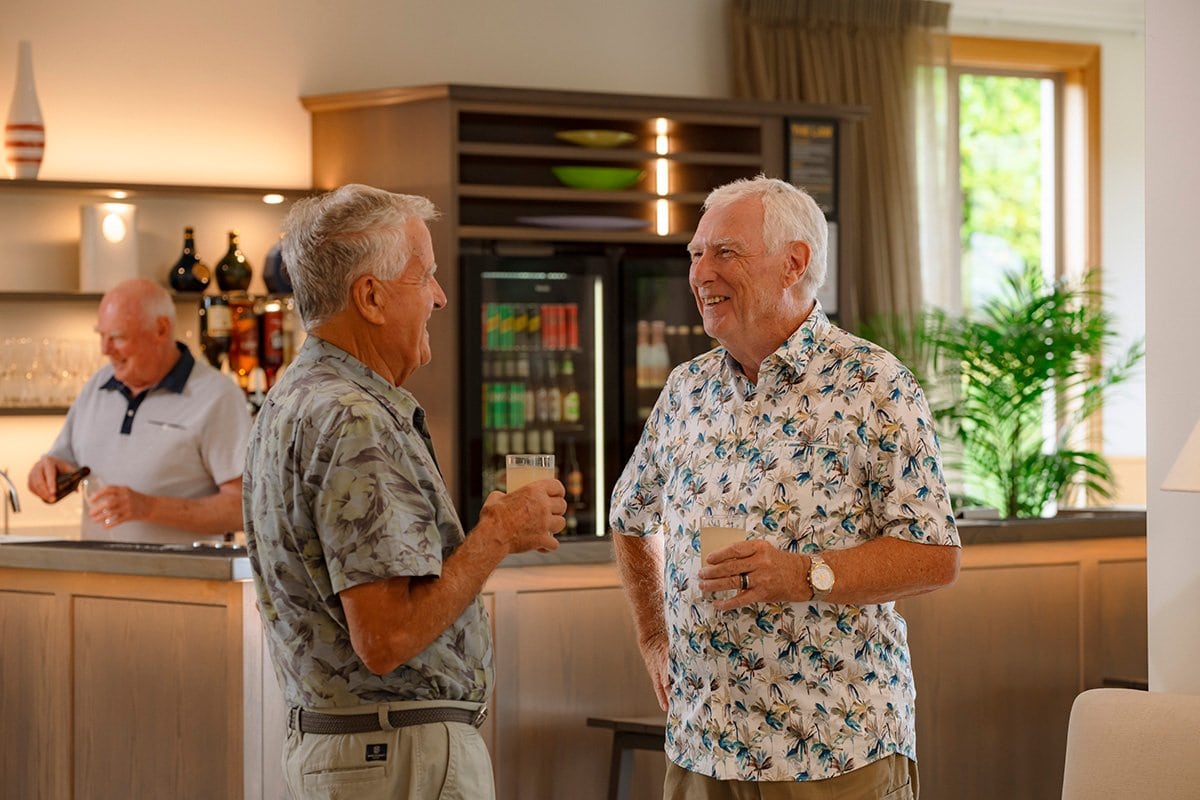
Imagine a world where everything is taken care of for you. On-site nurses, gated security, maintenance services, and gardening assistance provide a worry-free living experience. You can get support with meals, housekeeping and even transport. Again, this is all part of the lifestyle you are buying into with lifestyle villages like Settlers.
There is peace of mind that comes from knowing your needs are being met without worrying about how much it will cost you. Residents report feeling free of undue pressure, and free to do more of what they want. Which leads to the next point.
You can free up time
If you don’t have to worry about home maintenance and gardening, you can focus your energy on doing what you love.
“As you get older you have less energy but you now have more time. You can use the energy to do the things you want to do, rather than the things you have to do”.
“Four years ago my husband had a stroke. This is another thing that coming in here gives us – the opportunity for nursing, and you’ve got the alarms if anything happens”.
Mary
“We have 5 call buttons in our apartment. I pushed one by mistake once and the nurse was up in seconds!”
June
You can free up cash
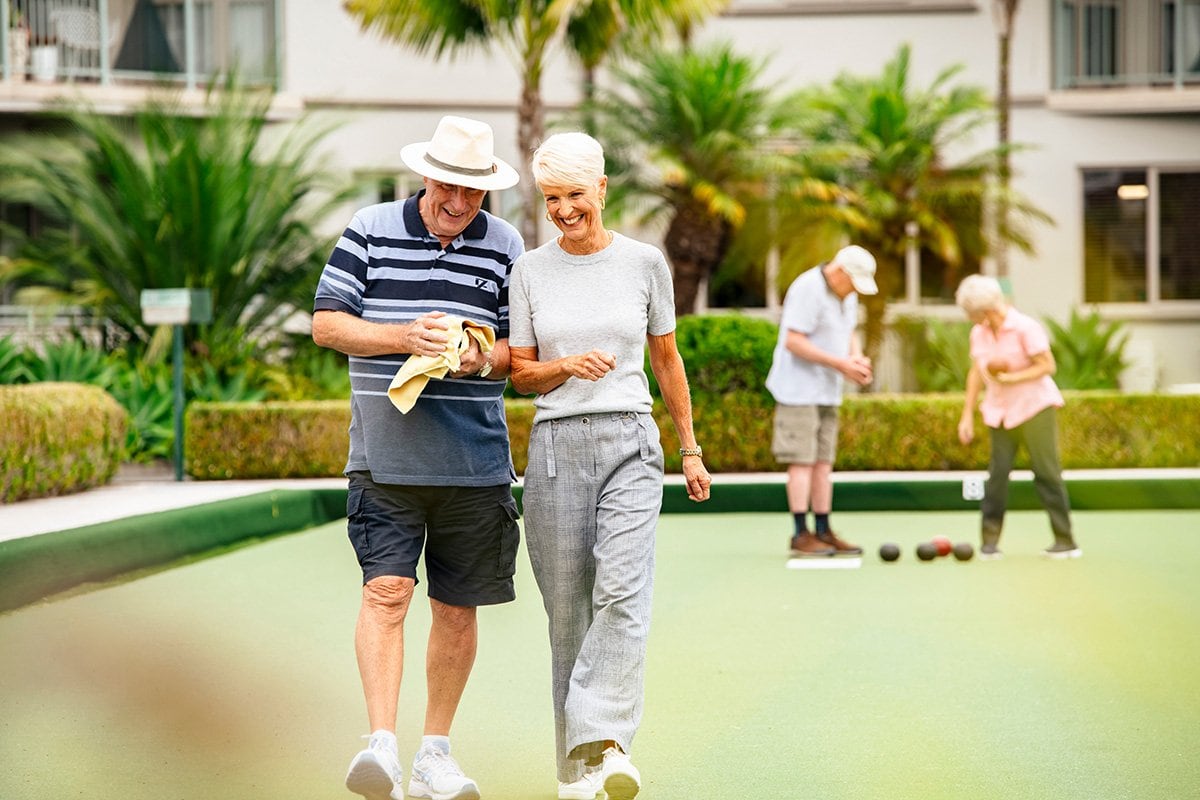
When you sell a home and buy into a LTO retirement home, depending on the value of the home you’re selling and the equity you have in it, it can often free up quite a bit of cash. This cash enables you to enjoy your retirement comfortably knowing that you have cash in the bank to fall back on, travel and so on.
“We could provide the children with an early inheritance and add another investment property to our portfolio”.
Jim
A licence to occupy a community offers many advantages, as couples who have chosen it have shared. A certain lifestyle, peace of mind, savings, equity access, and greater budgeting certainty are some of the benefits.
Nonetheless, agreements can vary significantly, so obtaining legal advice is important. Let’s take the example of fees. Some retirement communities do not offer fixed fees, and that’s an important factor to consider.
Additionally, you’re not buying real estate, but rather a license to reside. It can be difficult to grasp that concept by itself.
Yes, capital gains are lost, but for many couples who have made the decision to forego them, it was worth it for the lifestyle they’ve gained. Some even took their equity and invested in investment properties in order to maintain some form of capital gains, so they got the best of both worlds.
Disclaimer: Please note that we are not retirement law experts. The content of this blog is for informational purposes only and provides perspectives of a small sample of retirement village residents. You should consult a lawyer before making the decision to move to a license to occupy a village.
